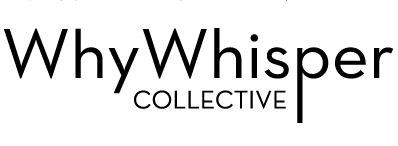by Kate Vandeveld
Today, employees are intent on finding meaning at work. In fact, a recent study showed 55% of millennials (currently the largest generation in the workforce) were influenced to accept a job based on that company’s involvement with causes.
As a result, an increasing number of businesses are contemplating corporate social responsibility (CSR) programs at their workplaces. If you’re currently evaluating options, volunteer programs are an impactful and relatively straightforward way for your team to make a big difference. Whether you work at a large corporation, a small business, or a collective of freelance consultants, you can develop a volunteer program that is both impactful and works for your team.
Ready to get started? Here’s how:
Define Your Goals
As with any new initiative, you want to begin by clearly defining what it is you’re working to achieve and how you’re going to measure it. Do you want to address an issue in your local community? Improve employee morale? Attract new hires? Build a stronger relationship with your customer? Don’t shy away from applying business goals to your philanthropic endeavors. By simultaneously creating wins for the community AND your business, you’re much more likely to build a sustainable and scalable program.
Consider Your Industry & Values
When you’re starting a volunteer program, you want to first consider how you can connect it to your industry and values. Without that connection, the relationship will likely feel less authentic to everyone you touch – partners, employees, and consumers.
As an example, if you’re a sporting goods company, it may make more sense for your team to volunteer time at an inner city summer camp than it would to volunteer at a food pantry. The stronger the tie between your industry, values, and volunteer efforts, the more your program will thrive.
Ask Your Team
When you’re looking to make a real impact on your community, the best thing to do is to tap into your team’s interests and passions. If you choose a cause relevant to your industry, but your team doesn't find it engaging, your commitment will likely be perfunctory and short-lived. Schedule a team meeting or send out a survey to find out:
- Their level of interest in giving back
- The specific social, economic, or environmental issues they care about
- The type of volunteer activities they’re interested in (e.g. physical, skills-based, mentoring)
- Their preference for team-based or individual activities
Choose the Right Model & Partner
Once you know the type of work you and your team want to do, you will next need to figure out the who and how.
In terms of structure, there are a number of options, but here are a few to get you started:
- Company-wide paid volunteer days: Choose a certain number of days each year during which your team will come together to volunteer with a specified nonprofit partner.
- Company-wide drives or fundraisers: Commit to supporting a nonprofit’s annual needs through collective employee fundraising and community advocacy.
- Skills-based projects: Explore structures where individual company departments use their particular skills to solve a specific problem (i.e. The marketing team can help boost a nonprofit’s fundraising revenues, while accounting can search for ways to make the nonprofit’s budget more efficient).
- Individual volunteer hours: Encourage your team to commit to a certain number of personal volunteer hours each quarter, to be carried out with the nonprofit partner of their choice. You can incentivize these by allowing employees to do their hours during regular work hours, or by offering paid volunteer hours outside of work.
If you’re choosing to align your volunteer activities with one nonprofit organization (as opposed to letting employees choose their own), you also want to be sure you’re starting off with the right partner. Here are some preliminary questions to ask as you’re researching potential nonprofit partners:
- What do the organization’s programs and services look like, and where do they need the most help? It can be helpful to list out each of the nonprofit’s needs and see how they match up to your employees’ skillsets.
- How long has the organization been around, and what is their experience with corporate partnerships? If the organization has been around for a long time or seems to be substantial in size, they may have good ideas and case studies for effectively engaging your team. On the other hand, a newer organization might have a greater need for corporate partners or volunteer support. Chat openly with prospective partners to figure out which of the two situations feels like a better fit for your team.
- How do they measure the impact of their efforts? Find out if the organization publishes reports on their website, or if they have data available upon request. This will give you a better idea of what your impact will be, and also help to further engage your employees.
- What is their staffing structure? Find out whether their staff is made up of volunteers or full-time employees, as well as their general workload and time commitments. Though it’s common to find nonprofits are understaffed, you still want to be sure you’re investing your team’s time in an organization that has the infrastructure in place to be responsive and properly leverage your contributions. A word of advice: At the beginning of the relationship, you’ll also want to ensure you have a key contact with whom you can coordinate your team’s volunteer efforts – it’ll be a game changer.
Formalize the Commitment
Draw up a company statement that spells out the goals and specifics of the partnership. This should be available on your website, so all involved and any external parties who are interested in learning about your work can access it. This will ensure that your team honors the commitment you’ve made to your community and that nonprofit partners stay within the boundaries of your agreement. Making the commitment public may also help you recruit new millennial talent who are searching for employers that are making an impact.
Engage Your Team
Whichever model you settle on, recruit ambassadors from each of your company’s departments. This will help with participation and enthusiasm, as well as reduce the overall work involved with organizing and coordinating the activities. If your company is large, you can also use this as an opportunity for testing your volunteer program: Start with one of your departments, and closely track the program’s success.
Once your program is developed and formalized, choose the communication channel you’ll use to keep your employees informed. Here are some ideas to get you started:
- Bulletin boards in common areas
- Email newsletters
- Internal company messenger systems or groups (e.g. Slack, Facebook Groups),
- SMS alerts
Know of a company that has implemented a particularly interesting or impactful volunteer program? We want to know all about them – here’s how you can tell us:
If your company is ready to launch a volunteer program, but needs some help getting it off the ground, get in touch with us – we will help you make it happen.







































